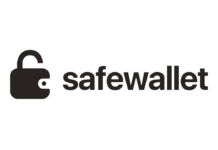
A mortgage interview is a necessary step in buying the house of your dreams. Even if the interview preparation is time-consuming, you should provide enough time for the document preparations and other processes. Your preparation for these interviews can be complex, but understanding the dos and don’ts helps you for a better presentation.
This blog will discuss what to do and what not to do during mortgage interviews, providing helpful advice to help you through this important step in buying a property. Joining CeMAP Courses and familiarising yourself with common Mortgage Interview Questions help you for a better interview preparation.
Table Of Contents
- Dos of Mortgage Interviews
- Don’ts of Mortgage Interviews
- Conclusion
Dos of Mortgage Interviews
Do Your Homework
Research the Lender and Get to Know Their Loan Products Before Your Interview. You need to consider the requirements provided by the lender before working on the document preparation. Being knowledgeable to lenders shows that you’re serious and ready.
Do Prepare the Necessary paperwork
Collect all necessary documents as per the requirements. The document list includes pay stubs, tax returns, bank statements, and identification proofs. Place them in an orderly folder to prepare them for presentation during the interview. Showing that you’re prepared and organised is an excellent quality to have.
Do Dress Appropriately
Dress properly for this one, just like you would for a job interview. This will help you make a good impression by demonstrating respect for the process. Dress formally to avoid coming across as unprepared or not taking the interview seriously.
Do Be Honest and Transparent
Give correct information regarding your financial situation and answer inquiries honestly. Being truthful establishes trust between you and the lender. The department highly values your straightforward actions. Attempts to withhold facts or provide inaccurate details may result in your application being declined. It reduces the chance of redoing the application process for the second time.
Do Ask Questions
Prepare to ask about the loan details, interest rates, and closing expenses. Show that you’re interested in asking questions or knowing the details carefully. This shows that you’ve read the instructions and considered the related documents carefully.
Do Explain Any Special Circumstances
If you have any unusual financial situations, including fluctuating income or a history of credit problems, you should be ready to discuss them during the interview. Providing context and any supporting evidence is essential to helping lenders better comprehend your circumstances.
Don’ts of Mortgage Interviews
Don’t Make Major Financial Changes
Before or throughout the mortgage application process, you should keep your finances the same. You need to consider changing jobs and taking on additional debt. When you are buying a costly item during this period, it also needs to be done thoughtfully. These changes may cause lenders to be wary of you and your creditworthiness.
Don’t Hide Your Income or Assets
Declare your assets, debts, and income accurately to the department. Keep honesty in your documents. Loan denial or legal ramifications for mortgage fraud are among the severe outcomes that may result from artificially inflating these data to qualify for a bigger loan.
Don’t Skip Payments
Focus on the history of paying bills on time, including utility, credit card, and loans regularly. Your credit score and likelihood of getting a loan are affected by whether you pay your instalments on time. Missing or forgetting the payment deadlines are also affecting the decision.
Don’t Overextend Yourself Financially
Pay attention to your income, expenditures, and long-term objectives when determining the maximum mortgage amount you plan to consider. Borrowing more money than affordable is not a great decision. It puts you in a financial position, increasing the likelihood that you may default on the debt.
Don’t Be Unprepared
Come to the interview on time and have all the necessary paperwork; be prepared and prepared. Lenders may view those who appear unprepared or disorganised with suspicion, which might lead to a poor assessment.
Don’t Avoid Feedback or Advice
Pay attention to the comments and suggestions regarding your loan application. The financial profile is also reviewed, and you must be ready to make changes according to their feedback. To increase your chances of getting a loan, it’s essential to listen carefully to any advice and consider making any necessary changes.
Conclusion
The interview process of Mortage is considered to be as important as the other interviews. You should understand and follow the dos and don’ts when you go in for your interview. If you want to improve your chances of getting a good mortgage loan, follow these factors before you attend the interview. For more information visit: The Knowledge Academy.

























